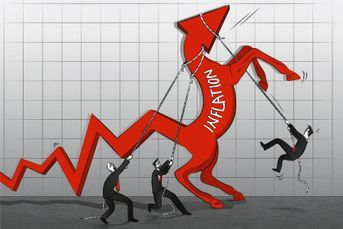It’s Vanguard vs. Fidelity in the robo-advice game

The two fund giants are battling in the robo-advice game but you might be surprised at which firm could come out on top after all. And take a look at which robo DOL Secretary Thomas Perez seems to like.
Barraged by investment firms eager to manage their life savings, many Americans are making their choice — for nobody. They’re shrugging off investment advisers altogether in the hunt for lower costs.
So fund giants Vanguard Group and Fidelity Investments are trying to win them over — with robots. The rivals, which have a combined $5.4 trillion in assets under management, are escalating the competition for customers in a new frontier known as robo-investing. Robo-firms use algorithms to design portfolios based on questions clients answer online. These portfolios will more than triple to as much as $60 billion in 2015 from about $16 billion at the start of 2014, Boston researcher Aite Group predicts.
(More: Robo-advisers want to plan your clients’ future)
Robo-startups Wealthfront and Betterment are sparking this latest race to the bottom in fees, a contest Vanguard kicked off with index funds 40 years ago. This time, companies are pitting machines against humans to reduce the cost of advice. “This is the new rivalry,” says Alois Pirker, a research director at Aite.
Vanguard has an ally in Palo Alto, Calif.–based Wealthfront. The company’s algorithms direct about 90% of the average portfolio to Vanguard funds. The firms don’t have a financial relationship, and they’re chasing different markets. Yet their CEOs praise each other’s strategies. “I’m a big fan of what’s happened in the robo-world,” Vanguard CEO Bill McNabb says.
Vanguard unveiled its own robo-like offering in May, called Personal Advisor Services, for customers with at least $50,000. It targets retirees, or near retirees, compared with the millennials who flock to robo-startups. Vanguard’s algorithm looks at age, risk tolerance, and other attributes it gleans from an online questionnaire. The client speaks with an adviser before finalizing the investment plan. Vanguard, located outside Philadelphia, charges a relatively puny 0.3% of assets annually on top of the fees for its funds. Traditional advisers can take 1% or more.
Fidelity is embracing the robo-product route via the 3,200 independent advisory firms for which it clears trades and holds about $1.5 trillion in assets. Boston-based Fidelity teamed up with No. 2 robo-firm Betterment in October to steer those advisers toward Betterment’s software. The robo-programs pick portfolios, often based on Vanguard funds, and automatically rebalance them to cut time and costs. Fidelity gets a referral fee, which it won’t disclose, from its New York–based partner. “Financial firms can no longer wait for the emerging affluent to appear at their doorstep when they have enough assets,” says David Canter, who heads a Fidelity unit serving independent advisers. “You have to think about them now.”
Fidelity, which built its business on funds that try to beat the market, says it doesn’t currently plan a robo-product for retail investors. It already has funds that automatically rebalance and online tools to build a portfolio. Its advisory services cost from 0.55% to 1.7% depending on the amount of assets a customer has.
In the rising robo-rivalry between Fidelity and Vanguard, the winner may be … Charles Schwab Corp. The largest independent U.S. brokerage by client assets started a robo-offering for retail investors on March 9. By the end of May, the new program had $2.4 billion in client money and about 33,000 accounts. “The pressure is on,” Aite’s Mr. Pirker says.
Learn more about reprints and licensing for this article.







